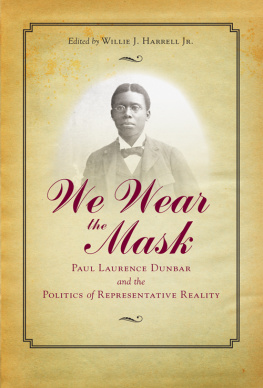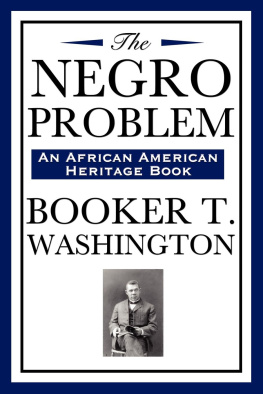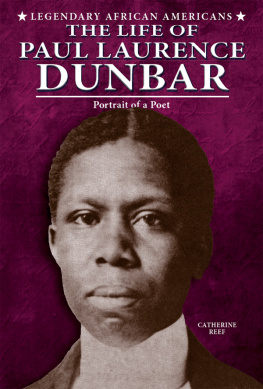Willie J. Harrell - We Wear the Mask: Paul Laurence Dunbar and the Politics of Representative Reality
Here you can read online Willie J. Harrell - We Wear the Mask: Paul Laurence Dunbar and the Politics of Representative Reality full text of the book (entire story) in english for free. Download pdf and epub, get meaning, cover and reviews about this ebook. year: 2010, publisher: The Kent State University Press, genre: Art. Description of the work, (preface) as well as reviews are available. Best literature library LitArk.com created for fans of good reading and offers a wide selection of genres:
Romance novel
Science fiction
Adventure
Detective
Science
History
Home and family
Prose
Art
Politics
Computer
Non-fiction
Religion
Business
Children
Humor
Choose a favorite category and find really read worthwhile books. Enjoy immersion in the world of imagination, feel the emotions of the characters or learn something new for yourself, make an fascinating discovery.
- Book:We Wear the Mask: Paul Laurence Dunbar and the Politics of Representative Reality
- Author:
- Publisher:The Kent State University Press
- Genre:
- Year:2010
- Rating:5 / 5
- Favourites:Add to favourites
- Your mark:
We Wear the Mask: Paul Laurence Dunbar and the Politics of Representative Reality: summary, description and annotation
We offer to read an annotation, description, summary or preface (depends on what the author of the book "We Wear the Mask: Paul Laurence Dunbar and the Politics of Representative Reality" wrote himself). If you haven't found the necessary information about the book — write in the comments, we will try to find it.
A prolific nineteenth-century author, Paul Laurence Dunbar was the first African American poet to gain national recognition. Praised by Booker T. Washington, W. E. B. DuBois, and Frederick Douglass, who called him the most promising colored man in America, Dunbar intrigued readers and literary critics with his depictions of African Americans struggle to overcome a legacy of slavery and prejudice. His remarkably large body of workhe wrote eleven volumes of poetry, four short story collections, five novels, three librettos, and a play before his death at thirty-threedraws on the oral storytelling traditions of his ex-slave mother as well as his unconventional education at an all-white public school to explore the evolving identity of the black community and its place in postCivil War America.
Willie Harrell has assembled a collection of essays on Dunbars work that builds on the research published over the last two decades. Employing an array of approaches to Dunbars poetic creations, these essays closely examine the self-motivated and dynamic effect of his use of dialect, language, rhetorical strategies, and narrative theory to promote racial uplift. They situate Dunbars work in relation to the issues of advancement popular during the Reconstruction era and against the racial stereotypes proliferating in the early twentieth century while demonstrating its relevance to contemporary literary studies.
We Wear the Mask will appeal to scholars and students of African American literature and poetry, as well as those interested in one of the most celebrated and widely taught African American authors.
Willie J. Harrell: author's other books
Who wrote We Wear the Mask: Paul Laurence Dunbar and the Politics of Representative Reality? Find out the surname, the name of the author of the book and a list of all author's works by series.







